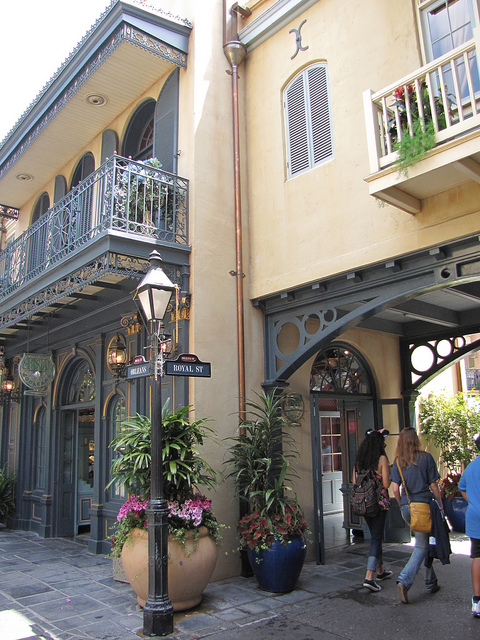Today’s Times-Picayune has a story by Jaquetta White on the revisions for the planned downtown taxing zone—an area from the river to Claiborne Avenue, and from the Pontchartrain Expressway to Elysian Fields. White writes:
As is, the proposal, written and supported by Mayor Mitch Landrieu’s administration and local tourism leaders and sponsored by state Sen. Ed Murray and state Rep. Walt Leger III, seeks to create a new board of as many as 11 appointees that would make policy decisions and have the power to levy taxes and issue bonds. The board members would not have set terms and would not be elected by the public.
If passed, the legislation would allow the city to levy special taxes in a new “hospitality zone,” bounded by the Mississippi River, the Pontchartrain Expressway and Claiborne and Elysian Fields avenues. The money would be a sustained source of income for infrastructure improvements in the area.
Murray introduced bills to create this zone in this state legislative session with the upcoming Super Bowl and All-Star Game as the backdrop. The goal is obviously to beautify the most tourist-traveled parts of the city and beef up the tourist industry before these major events, and while this tourist zone represents a different process and a different entity than the noise/live music-related debates, it’s hard not to notice how hands-on and pro-active the Mayor’s office can be when it wants to be. It’s hard not to wonder if the Mayor’s office has delegated the noise-related questions to community leaders and councilmembers so that they can spend hours debating issues such as speaker placement until they slowly dither the questions until the debate ends, not because the issue’s solved but because inertia grinds the process to a bored, frustrating, inconclusive stop.
White’s story also gives us reason to be a little skeptical of the tourism leaders, and particularly the New Orleans Convention and Visitors Bureau. The story online at Nola.com is illustrated by a photo of Allen Toussaint watching representatives of the Ashe Cultural Center in a parade that took place Tuesday in the French Quarter to celebrate National Tourism Week. Look behind Toussaint and you’ll see few people. The photos in the print edition make that point even more clearly as a photo by John McCusker on C-7 shows the Sophie B. Wright marching band parading through an essentially empty Quarter, and one on C-5 focuses on what looks like tourist bureau workers with umbrellas second lining. Judging solely by the photos, the event looks a lot like the sort of faux parade that takes New Orleans’ cultural practices out of context and empties them of meaning.
That’s how the Disneylanding of New Orleans will happen—not through radical decrees but through minor tweaks that separate activities from history and culture, done with the best civic motives in mind.
White’s story gives us reason to fear the same old empire building is about to take place, just in a new office:
In defending the plan, Stephen Perry, president and CEO of the New Orleans Convention and Visitors Bureau, said that hotel operators acted “in the absence of every other citizen and business sector,” choosing to tax themselves in order to improve the area around them. Perry said hotel operators put their businesses at greater risk for competition by deciding to move forward with an additional tax.
“It’s because of the complete lack of selfishness on the part of (local hotel operators) that this is happening,” Perry said. “The hotels are taking a major risk by increasing the taxes on their hotels to make sure the French Quarter is safer, better lighted and has higher standards of sanitation.”
Perry also dismissed complaints he’s received that the proposal called for is too onerous a tax on local diners.
“This is not a tax on locals,” Perry said, dismissing the proposed .25 percent tax on food at restaurants in the designated hospitality zone as “so small.”
“If a local goes in the French Quarter for dinner and it’s $100, this will add $0.25 to their bill,” Perry said.
But in return, he said, the visitors bureau would be able to use funds raised through the tax to hire eight to 10 new convention sales managers and launch an international marketing campaign. Meanwhile, the marketing corporation would be able to engage in more substantial marketing programs in New York, Chicago and Los Angeles, places that have traditionally been too expensive.
Summarizing, hotel operators are heroes, a tax isn’t a tax if it’s small enough, and the CVB will grow in numbers and influence. The irony, though, is that what people seem to like so much about New Orleans is its realness. It’s a place where you can find a good brass band just off Canal Street, where memorial second lines spring up unpredictably because death isn’t predictable, and where history and culture shape the cool things people discover here. If the significance of those roots aren’t acknowledged, then the city’s just a big Bourbon Street with fewer bared breasts.





